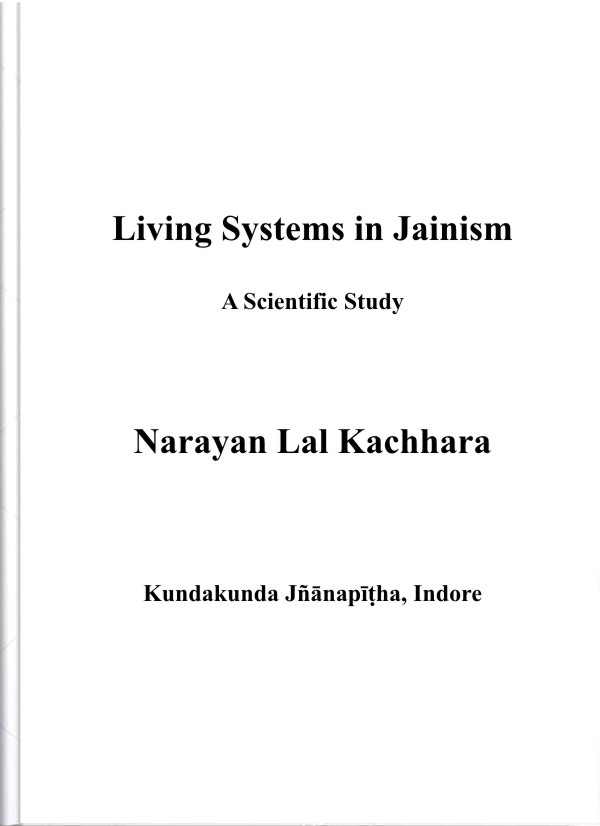Vayubhuti, the youngest brother of Indrabhuti, was the third scholar to reach Mahavira. Addressing him, as before, Mahavira said, "Vayubhuti! You have a doubt about whether the soul and body are one or different. You have this doubt because you have not understood the Vedas properly. You believe that consciousness emerges from the combination of earth, water, fire and air. As the property of intoxication is absent in the components of wine but is present in the wine itself, similarly consciousness is absent in earth, water, fire and air but emerges when these components combine (to produce the body). This new property remains in existence as long as the components stay together and disappears on their disintegration. So consciousness is the property of bhutas (material existences), and consciousness and the body are not different."
To clarify this doubt, Mahavira said, "Vayubhuti! Your doubt is not right. Consciousness cannot emerge from the combination of material components, as none of them individually possess this property. How can a property that is absent in the components be present in their product? Your assumption that the property of intoxication is absent in the components of wine is not correct: each component has this property in some measure and therefore wine is intoxicating."
Mahavira continued, "Why can't we assume the existence of consciousness, like the ingredients of wine, in each component of the body? No, this is not right. We do not see any sign of consciousness in the components of the body. You may say that there is no need to assume an intoxicating property in each of the ingredients of wine. But in that case anything, like stone, clay, etc. could be valid ingredients of wine, but in practice we find that this is not true. Hence each ingredient of wine necessarily possesses an intoxicating property."
Consciousness is a property of the soul. Explaining this, Mahavira said, “There is an element different from the senses (the material body) that has the property of consciousness, because the element that perceives the objects contacted by each of the senses must be different from the senses themselves. That element, different from the senses, is the soul, jiva, or consciousness. You may again say why can't we assume the senses to be the perceiver? Mind that we continue to remember the object perceived by a particular sense organ even after that organ is destroyed or incapacitated. Sometimes we perceive a thing through a particular sense organ and remember it, and sometimes we forget it even if that sense organ is in order. Therefore we must assume that the senses are not the perceiver; the perceiver is different from the senses. This perceiver is the soul.
“Further, the same object can be perceived by more than one sense, so the perceiver must be different from senses. Sitting in a house, you see the same object through two windows, so the observer must be different from the windows. Similarly, the soul perceives an object through different senses, and so is different from the senses. Secondly, the object is perceived through one sense organ, but its property is sensed through another sense organ. For example, a lemon is seen by the eye but is tasted by the tongue. Therefore the perceiver must be different from the senses. Thirdly, the perceiver remembers the objects perceived through all five senses, so he must be different from the senses.”
Vayubhuti: "Even if the soul is different from the senses, it perishes with the body. What is the advantage in proving it different from the body?"
Mahavira: "This is not a valid doubt. For someone who remembers his previous births, the body is destroyed but there is something (the soul) that is not destroyed. If the soul were also destroyed, then who could remember the previous birth? An old person remembers his childhood because the soul continues to live: so does the soul from birth to birth and remembers his previous life. A soul remembering his past birth must not die.
“If someone says that memories are stored in the brain, then it is obvious that when the body dies the brain should not - if the memories are to be carried forward. Since the brain is also destroyed with the body there must be something else, the soul, that retains the memory. One that is temporary cannot remember the past, and therefore the entity that remembers must be permanent. The soul is eternal and has the attribute of intelligence, and so it remembers the past. Memories can never part from the soul.”
Vayubhuti: "If the soul is different from the body, why don't we see it entering or leaving the body?"
Mahavira: "There are two kinds of instances of the non-availability or non-observability of a thing: (1) a thing is like the horn of a mule, non-existent; or (2) a thing exists but it is very far away, or very near, or very subtle. The soul is non-physical and the karman body attached to it is very subtle, so we cannot see the soul entering or leaving a body."
Vayubhuti was satisfied and he, along with his 500 disciples, accepted the Order of Mahavira.
 Dr. N.L. Kachhara
Dr. N.L. Kachhara
